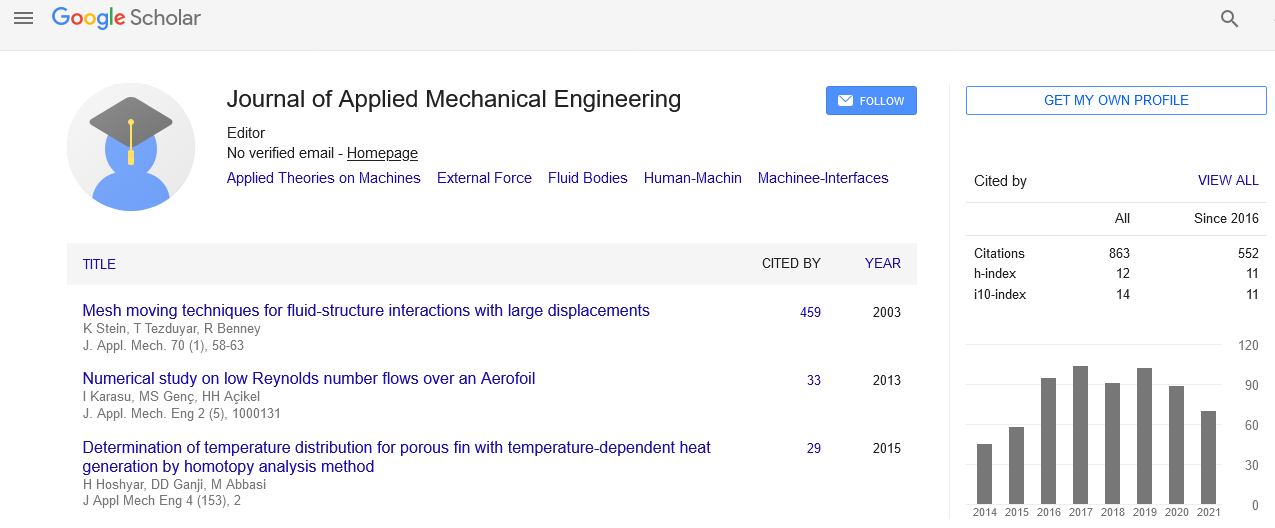Indexed In
- Genamics JournalSeek
- JournalTOCs
- CiteFactor
- RefSeek
- Hamdard University
- EBSCO A-Z
- OCLC- WorldCat
- Publons
- Google Scholar
Useful Links
Share This Page
Journal Flyer

Open Access Journals
- Agri and Aquaculture
- Biochemistry
- Bioinformatics & Systems Biology
- Business & Management
- Chemistry
- Clinical Sciences
- Engineering
- Food & Nutrition
- General Science
- Genetics & Molecular Biology
- Immunology & Microbiology
- Medical Sciences
- Neuroscience & Psychology
- Nursing & Health Care
- Pharmaceutical Sciences
Estimation of residual stresses in an 800 mm thick narrow-gap steel weldment
International Conference on Design and Production Engineering
July 25-26, 2016 Berlin,Germany
N Siva Prasad
Gitam University, India
Scientific Tracks Abstracts: J Appl Mech Eng
Abstract:
An 800 mm thick narrow-gap carbon-manganese steel weldment was fabricated using the submerged arc welding process. A total of 600 weld beads were deposited to butt weld 800 mm thick plate of 1.5 m length. Residual stresses in the weldment were determined by finite element analysis in the multi-pass welding, assuming plane strain conditions. The addition of filler material was simulated using the dummy material method. Solid-state phase transformations were also taken into account. The welding heat source was simulated using Goldakā??s double ellipsoidal model. The heat source was calibrated using the welding parameters and macrograph of the weldment. A bead-by-bead deposition model and two different lumped models were used for analysis. The results obtained by these models were validated by experimental measurements. While both bead-by-bead and lumped models were found to overestimate the maximum residual stress in as-welded condition, the latter facilitated a safer upper-bound estimate of the residual stress. Moreover, the computational time required for lumped model was about 10% of that required by the bead-by-bead deposition model. The net tensile stress in the weld metal was found to decrease as a result of solid-state transformation of austenite to ferrite. The effects of post-weld heat treatment at 600Ā°C were also studied. The steady-state creep during post-weld heat treatment was simulated using Nortonā??s law. A significant part of stress relief was found to occur in the first half hour of the holding time during post-weld heat treatment. A formula was developed for estimating the maximum residual stress in post-weld heat treated condition. The relative influence of temperature and time of post-weld heat treatment on stress relief was studied.
Biography :
N Siva Prasad has completed his PhD from IIT Madras. He has published more than 75 papers in reputed journals and has been serving as a reviewer for many journals. His research interests are Finite Element Analysis, and Computer Aided Design.
Email: sivacae@yahoo.com

